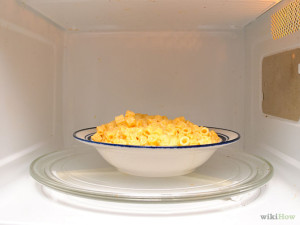I want you to think about a subject that you actually know. By this I mean some field, endeavor or task that you routinely produce tangible results in. (A good standard is when you’re done, there’s something you can put into a wheelbarrow.)
How complicated is it to produce that?
What are the requirements to do it? What processes must you do? What steps must you take? What tools, equipment and circumstances do you need? What knowledge and skills must you have in order to produce a tangible result? Why do you do it this way (to get this result) vs. that way? What do you NOT do and why? How do you assess and gauge the countless factors that go into the process? How complicated and in depth are these so-called ‘simple’ things we do every day?
If this is too broad of a question, ask yourself these questions about cooking a meal. Even if you’re a wit and say ‘I put it into the microwave’ you’re only half right. First you need to be able to walk and move. Second, you need electricity and a microwave. Third, you need the prepackaged food that has been grown, harvested, manufactured(prepared), packaged, shipped, sold and refrigerated. All of those require massive technology and distribution systems. Fourth, and you’ll know the experience if you’ve ever tried to figure out another country’s electronics, you have to know how to program and start the microwave. Then there’s getting it out of the microwave without burning your fingers. Lacking these, the microwave quip is meaningless. With these, it’s both the end of a many complex processes and the point I’m trying to make.*
That’s just microwaving, not actually cooking it yourself. Tracking back to the original questions, ‘just’ cooking is way more complicated, deep and involved. Yet with training and experience we easily navigate through massively complex processes in order to produce.
That’s actually a double edged sword. We tend to minimize the complexity of what we do actually know. At the same time we become vulnerable to anyone trying to ‘sell us’ that complex issues are simple and all about ‘one thing.’ The latter especially in the form of soundbites, advertising and narrative.
Things are ALWAYS more complicated, involved and variable than what someone is trying to sell you. And yes, anytime someone tells you it’s ONLY about _____(fill in the blank) that person is trying to sell you an idea. Or worse, they’ve weaponized a reductionist cliche or term to get you to shut up.
Human behavior is one of the most complicated, variable and fascinating topics I know. I’ve dedicated my life to studying just one aspect of it. Yet every morning I get out of bed and am nearly overwhelmed at how much I don’t know about the specialized field I’m considered an ‘expert’ in. That’s after five decades. Yeah, it’s that deep and complex.
Oddly enough, this makes me less appealing as an expert, because I don’t come out and say — with complete confidence — ‘This is all there is and there is no more!” See simplistic answers and an abundance of confidence really appeals to the part of our brains that want to reduce the complexities of life to simplistic narratives and never mind reality (much less all those messy complications).
So the next time someone comes up at you with a soundbite and a claim of ‘this is what is the cause’ of ______(fill in the blank),’ don’t fall for their confidence or the claim of simplicity.
Stop and think how complicated, involved and variable ANYTHING you routinely do is. Then ask yourself, if I know how complicated making dinner is how likely is it that this person is the possessor of an absolute truth about not just society, but all of humanity to boot?
This allows you the response, “Sorry fella, but making macaroni and cheese is more complicated than your philosophy/politics/position/
*Although, it’s arguable that the complexities of the microwave and electricity are so far above the individual’s head that the button pusher is more of a trained monkey.
